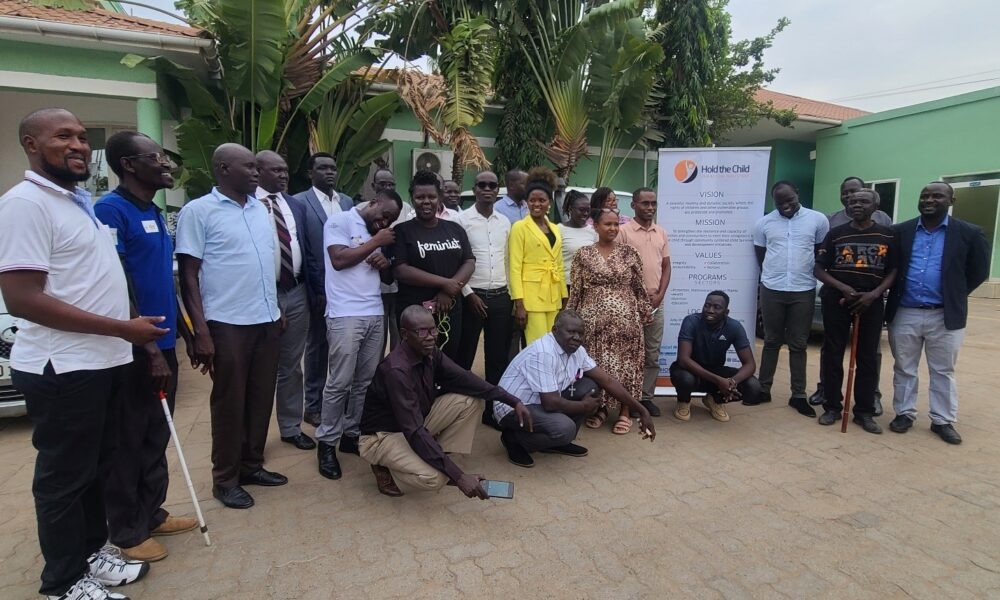By Kei Emmanuel Duku
As South Sudan prepares for its first elections in December 2024, activists are alarmed over persistent human rights violations in some regions of the country.
No. 1 Citizen Daily Newspaper held an interview with Executive Director of Christian Agency for Development (CAPD), Peter Malir Biar, after a one-day workshop organized by Hold the Child.
He highlighted on prevalence of human rights abuses since outbreaks of 2013 and 2016 conflicts in Juba.
According to Malir, there has been serious violations, including arbitrary arrests, rape and restrictions on freedom of expression.
He noted that perpetrators of the abuses have never been held accountable before the law.
Despite the relative peace in Juba and other states, Malir described the overall civil space in South Sudan as fragile, inhibiting citizens from free expression of their views.
He pointed out Upper Nile and Bahr El-Ghazal regions, as areas with persistently high incidences of human rights abuses, including ethnic violence.
Malir stressed that if these issues are not adequately addressed, they could have detrimental consequences on the upcoming December polls.
“As we move towards elections and knowing very well this country has been characterized by violence and human rights abuses before, we need to have strong justice systems that are accountable to the public but above all also to give citizens the opportunity to advocate for our rights,” Malir said.
However, the activist emphasized the importance of bolstering the capacity of Civil Society Organizations and Human Rights Commissions to effectively document and report any instances of human rights abuses that may occur in the country.
Human Rights are inherent to all individuals regardless of their race, sex, nationality, ethnicity, language, or religion, and encompass a range of fundamental entitlements. These include the right to life and liberty, freedom from slavery and torture, freedom of opinion and expression, and the right to live a dignified life.
According to the Head of Programs, Hold the Child-South Sudan, Eric Gisairo, the common forms of human abuses registered in the country include prolonged access to justice, false accusation and not following the legal or right procedures of arresting an accused person.
He further said the weak justice systems in other areas where authorities sometimes use the customary laws continue to infringe on citizen’s rights and there is a need for advocacy.
“If someone has committed a crime, the first arrest of the warrant should be provided after that the person can be taken for questioning and taken to a competent court for trials for the crimes he/she has done, but again here the challenge sometimes is some areas do not have available courts and if available sometimes they resort to local customary laws,” Gisairo explained.
James Idroy Youngule, State Human Rights Coordinator at the South Sudan Human Rights Commission said the identified several challenges faced by the commission.
He said these include delays in prosecuting human rights violators, lack of commitment by the National Parliament to adopt reports and recommendations made by the commission, and accusations that the commission is merely a proxy for foreign countries.
“The State (Government) has the right to ask for speedy trial of any Human Rights violator but also they must not have any influence over the trial process however, our major challenge is the National Parliament, we present reports/recommendations and no changes, impunity continues as it is,” Idroy said.
He urged the Government of South Sudan, Human Rights Commission, and Civil Society Organizations to work together to end the suffering of South Sudanese.
The United Nations Human Rights Commission on South Sudan last month issued a report highlighting continuous human rights abuses by armed forces, militias, and state institutions, leading to the devastation of families and communities.
The Commission’s Chair, Yasmin Sooka, underlined the need for South Sudan’s leaders to implement the pending tasks before the December elections to prevent human rights abuse and ensure meaningful elections.
The 2018 Revitalized Peace Agreement lays out measures to address conflict drivers and human rights violations.
The report recommends that the Government of South Sudan focuses on addressing structural drivers of violence, implementing core aspects of the Revitalized Agreement, establishing transitional justice institutions, identifying required actions to open democratic space, and enabling political processes that are meaningful and legitimate.
However, the South Sudan Government thrashed the report describing it misleading.




